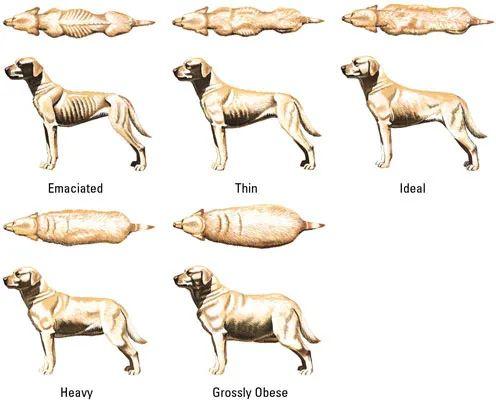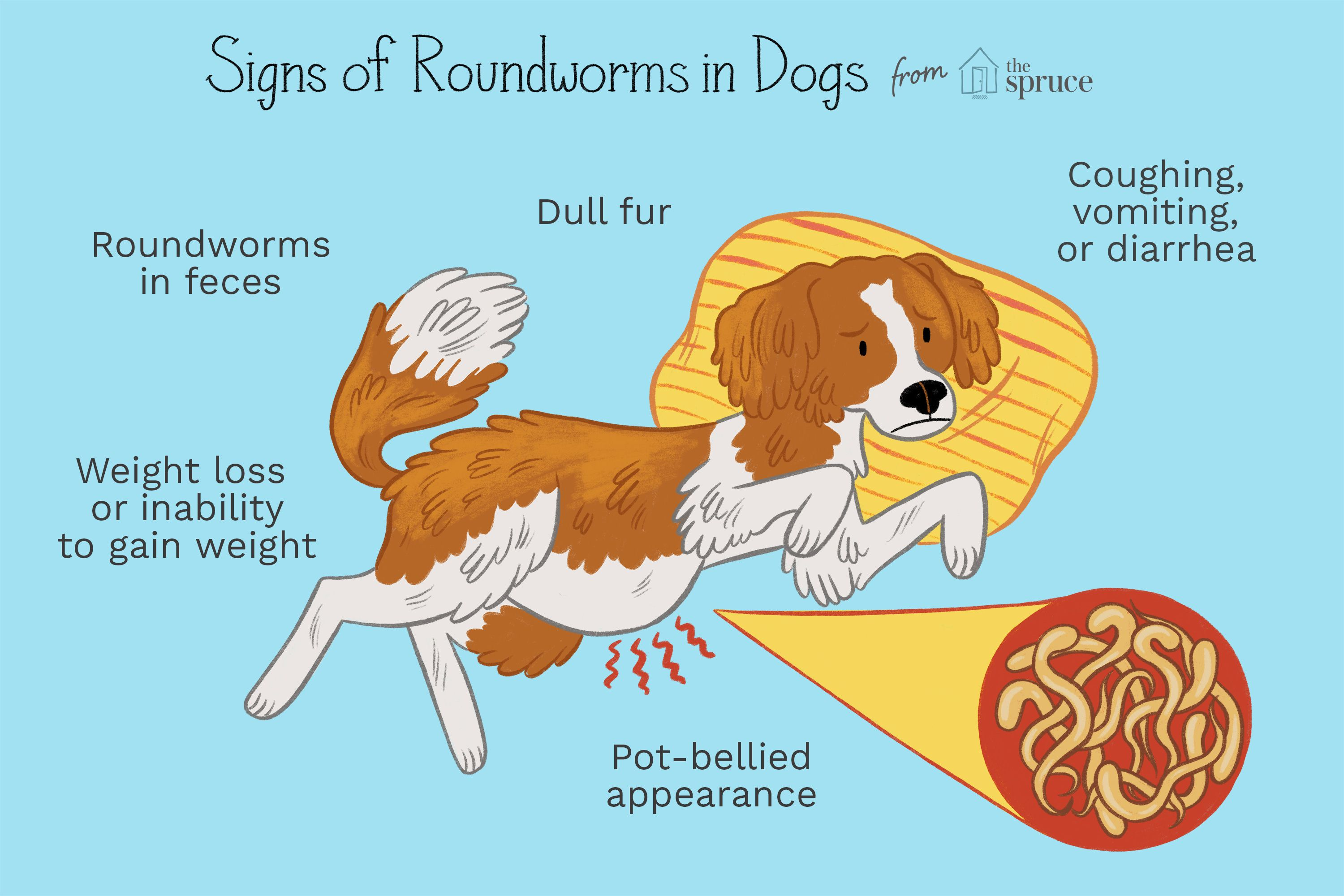A Pet Owner's Deep Dive: The 5 Signs of Roundworms in Dogs
As a devoted pet parent, you know your dog better than anyone. You know their favorite toy, the exact spot they love to be scratched, and the happy dance they do before a walk. So, when you notice something is "off"—maybe their belly seems unusually round for their slender frame, or their once-sleek coat has lost its sheen—it's easy to feel a pang of worry.
These subtle changes, often dismissed as harmless quirks, can be tell-tale signs of a very common internal parasite: roundworms. This comprehensive guide will not only help you identify the symptoms shown in the infographic but also understand *why* they happen, what they mean for your dog's health, and the exact steps you need to take.
First, What Exactly Are Roundworms?
Before we dive into the signs, let's clarify what we're dealing with. Roundworms (the most common species being Toxocara canis) are intestinal parasites that look alarmingly like strands of cooked spaghetti. They can grow to be several inches long and live in your dog's intestines, feeding off the nutrients from their food. They are incredibly common, and it's estimated that almost all puppies are born with them or acquire them shortly after birth.
The 5 Key Signs of Roundworms: A Detailed Look
Here, we break down each sign, explain the biology behind it, and show you what to look for.
1. The "Pot-Bellied" Appearance
Why it happens: This is the most iconic sign of a worm infestation, especially in puppies. That swollen, tight-looking belly isn't from overeating or puppy fat. It's a direct result of a large number of worms physically taking up space in the intestines. This mass of parasites causes inflammation, gas buildup, and discomfort, leading to a distended, "pot-bellied" appearance that is out of proportion with the rest of their body.

2. Dull Fur and Poor Overall Condition
Why it happens: A dog's coat is a fantastic barometer of its internal health. For fur to be shiny and soft, it needs a steady supply of proteins, fats, and vitamins. Roundworms act like thieves, stealing these vital nutrients from your dog's food before their body can absorb them. This nutrient deficiency directly impacts skin and hair health, resulting in a coat that is dry, brittle, and dull. Your dog may just look generally "unhealthy" or fail to thrive.

3. Weight Loss or Inability to Gain Weight
Why it happens: This symptom is directly linked to the nutrient theft mentioned above. You might be feeding your dog a high-quality, balanced diet, yet they continue to lose weight or, in the case of a puppy, fail to grow at a normal rate. They might even have a ravenous appetite, constantly seeming hungry, because their body is craving the nutrients it isn't receiving. It's a frustrating cycle for an owner to witness: more food in, but no healthy weight on.

4. Coughing
Why it happens: This is perhaps the most surprising symptom. A cough from an intestinal worm? It happens due to the roundworm's bizarre life cycle. After eggs are ingested, they hatch in the intestines. The tiny larvae then embark on a journey, burrowing through the intestinal wall, entering the bloodstream, and migrating to the lungs. This migration causes irritation in the lungs, triggering a dry, persistent cough. The dog then coughs up the larvae, swallows them, and they return to the intestines to mature into adults. This cough is often misdiagnosed as a minor respiratory issue.

5. Vomiting, Diarrhea, and Visible Worms
Why it happens: A heavy worm burden severely irritates the lining of the stomach and intestines, leading to common gastrointestinal upset like vomiting and diarrhea. The most undeniable proof, however, is when you see the worms themselves. If the worm load is high enough, your dog may vomit up adult worms (which look like spaghetti) or pass them in their stool. If you see this, it's not an early warning—it's a sign of a significant, active infection that needs immediate attention.
:max_bytes(150000):strip_icc():format(webp)/139826749-56a9c1d33df78cf772aa4916-5bf2cd4cc9e77c00266d2680.jpg)
You've Seen the Signs. What's the Immediate Action Plan?
If any of this sounds familiar, don't panic, but do act decisively. Follow these steps:
- Call Your Veterinarian: This is non-negotiable. Describe the symptoms you've observed. Crucially, do not buy over-the-counter dewormer without veterinary guidance. Different parasites require different drugs, and an incorrect dose can be ineffective or even toxic.
- Collect a Fecal Sample: Your vet will almost certainly ask for a fresh stool sample. Use a plastic bag to collect it. This allows them to perform a "fecal float" test, where they mix the sample with a solution that causes parasite eggs to float to the top, confirming the diagnosis under a microscope.
- Follow Treatment Exactly: Your vet will prescribe a deworming medication. It's vital to give the full course as directed, which may include a follow-up dose in a few weeks to kill any newly matured worms that hatched after the first dose.
Long-Term Prevention: Keeping Your Dog Worm-Free
Treating an infection is only half the battle. True peace of mind comes from prevention:
- Strict Deworming Protocol: Work with your vet to establish a regular deworming schedule. This is especially critical for puppies.
- Year-Round Parasite Control: Many monthly heartworm preventatives also protect against roundworms and other intestinal parasites. This is the easiest and most effective long-term strategy.
- Environmental Hygiene: Clean up your dog's feces from your yard immediately. Roundworm eggs become infective after a few weeks in the soil, so prompt removal breaks the cycle.
By understanding these signs and their underlying causes, you are empowered to be the best possible advocate for your dog's health. You can catch problems early, seek the right help, and ensure your furry friend lives a long, comfortable, and worm-free life.

